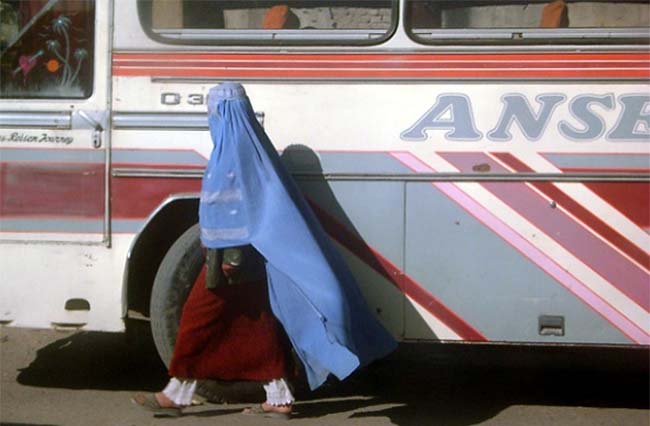Street harassment exists almost everywhere in the world but exceptionally it disguised the face of Afghanistan to be the most insecure place for women in the world. It is said that, nine out of ten women and girls in urban communities in Afghanistan face harassment. Every woman’s experiences differ depending on the distance she travels or her time on the streets, but she can face up to 20 incidents of verbal or physical harassment or inappropriate stares and disturbances from male pedestrians. According to Women and Children Legal Research Foundation conducted research with 364 women and girls about sexual harassment in public spaces, workplaces, and educational institutions in seven provinces of Afghanistan. 93% said they were harassed in public spaces, 87% said workplaces, and 89% said educational institutions. Additionally, 90% had observed sexual harassment in public places, 79% in educational settings, and 72% in workplaces. However, it is recognized as the least spoken-about form of violence, which is rife in workplaces, at educational institutions, and on the streets.
There are some provinces where women are not able to go out at all. For instance, In Jalalabad there are almost no women on the streets. Women are afraid to leave their homes without an escort; girls cannot continue their education. People believe that women themselves are to blame for these situations. There is no rule of law to create hopes and there is no active organization in the government to look after the matter. No one listens, because street harassment is becoming a culture in Afghanistan. If the law is not implemented against street harassment it will continue forever. Women cannot feel safe on the streets even during the daylight; at night it is completely impossible or very hard for them to be outside. Students will never learn to respect women and they become the next generation of harassers because they are not well educated even to the extent that learn from their teachers.
Even though girls’ access to education and women’s employment and participation in public life have improved since 2001, sexual harassment makes it hard for girls and women to take advantage of these opportunities. Many of families stop their female member when education or workplace is not located close to their homes. Most of girls themselves quit university when they frequently experience street violence. If the rule of law continues to be currently weak, if the culture of impunity does not root out, and if expertly proper actions are not taken against street harassment, problem will gravely hold back the inclusion of women in Afghanistan.
Street harassment has many factors such as psychological, social, economic, moral, lawlessness and sexual deprivations due to fiscal inability for timely marriage. From one hand, the Expenses of wedding is the most costly in Afghanistan comparing to other countries; on the other hand, couples are not chosen on the basis of logical suitability but often chosen based on preferences of parents or other family members. As a result they are not satisfied from each other and try to satiate their thirst on the street. It is also believed that women have a role in increase of street harassment; they come out without proper Hijab and enchanting makeup.
In addition, it is also noticed that the majority of women prefer to remain silent when facing street harassment, but is silence an appropriate response? Silence in most cases only strengthens and intensifies violence against women. Harassers wrongfully assume that women, who are silent in the face of street harassment, are consenting to these acts or they are not strong enough to defend themselves. Due to the predominant culture of “shame” and “honor” and high social stigma attached to issues of sexual harassment, Afghan women often do not talk about their experiences of street harassment. The scar remains invisible and women continue to suffer, generation after generation. This, in itself, boosts the harasser’s confidence who continues to stalk and abuse women without fear of repercussions. Therefore, single solutions may not lead to essential changes to the issue rather it needs to studies from psychological, social and economical dimensions.
Lastly, the Street harassment in Afghanistan is more than an ignorable issue to be belittled. It makes women nervous and insecure as they go about their daily lives, as they go to work, attend university, do their shopping, and even go out with friends for a picnic. According to studies, it can happen everywhere—even in the place she is born and grew up. It became a part of social culture; men follow female and make rude comments.
There is no respect for women on Kabul streets, let alone in other provinces. If they wait for a taxi even for five minutes, many private cars will stop and offer to take them home. If they take a taxi the driver will start to question them: Are you married? Do you have any children? Where do you live and so on…?
We must all work together to end gender based violence; we should raise our voices, support women groups and give each other a hand to show society how severely street harassment affects women. It could be happening to our sister, mother, aunty, and our children. Finally, men must understand that women rights are human rights and Islamic rights.
Home » Opinion » Street Harassment in Afghanistan
Street Harassment in Afghanistan
| Mohammad Zahir Akbari

